Richard Ingrams
A book that gave me great enjoyment (for all the wrong reasons) was Harvest Bells: New and Uncollected Poems by John Betjeman (Bloomsbury Continuum, £16.99). The compiler, Kevin J. Gardner, professor of English at Baylor University, Texas, claimed that all the poems in the book had been subjected to his ‘rigorous scrutiny’; yet somehow a spoof Betjeman poem, published in Private Eye after the exposure of Anthony Blunt as a Russian agent in 1979 (for which I was partly responsible), had found its way into the professor’s ragbag of a compendium:
Who’d have guessed it? Blunt a traitor
And a homosexualist,
Carrying on with tar and waiter —
There’s a sight I’m glad I missed.
‘Betjeman,’ Gardner writes, ‘replicates the unmasking of Blunt in the exposure of his own subconscious feelings, which lurk behind a typical Betjemanesque facade of moral and aesthetic superficiality.’ It’s hard not to feel delighted when a pretentious academic (particularly an American one) comes a cropper in such a memorable way. And it’s not hard to imagine Betjeman, who would have hated this book, howling with laughter at the poor man’s discomfiture.
Jeff Noon
In January, Penguin will complete its six-year mission to reprint all 75 books in Georges Simenon’s Maigret series, in freshly minted translations and brilliant covers. I’ve started to read them in chronological order. Elegant style, ambiguous dialogue, deft portrayals — the books’ qualities act on the senses as a plunge into freezing water. The word processor allows us to overwrite, to endlessly fill in the gaps, reworking and reworking. By contrast, Simenon took less than a month to write a Maigret mystery. The typewriter’s mechanism persuaded novelists to get it right first time. And, very often, Simenon did.
One new mystery that stands out this year is The Newcomer by Keigo Higashino (Little Brown, £13.99), simply because its plotting is so unusual: a criminal investigation conducted through a series of tangential vignettes, each one connected by a wonderful sense of small-scale humanity.
Ruth Scurr
Two very different books about the sea have delighted me this year. David Abulafia’s The Boundless Sea: A Human History of the Oceans (Allen Lane, £35) is a majestic and beautifully illustrated account of human interaction with the sea, ranging from the Polynesians of the Pacific in the 1st century to the supertankers and vast cruise ships of our own times. Abulafia writes fluently and with deep humanity across the vast expanse of his subject.
Charlotte Runcie’s Salt on Your Tongue (Canongate, £14.99), is an intensely personal paean to the sea. Runcie interweaves her experience of an unplanned first pregnancy with her attraction to the seashore and the stories of women who traditionally waited for ships to come home.
Graham Robb
Michel Houellebecq’s hilariously sordid Serotonin (Heinemann, £20) is a state-of-rural-France novel and the semi-repentant confession of a failed hedonist who works for the Ministry of Agriculture. In this ‘degenerate’ land of wealthy porn addicts and demoralised peasants, the light relief comes from anti-depressants and ‘the ambience of global catastrophe’, which ‘always goes some way to alleviating individual catastrophes’. The cheerfulness is all in the writing.
Jon Day’s precise and poignant Homing: On Pigeons, Dwellings and Why We Return (John Murray, £16.99) is an account of his induction into the sport of pigeon racing, a history of the pigeon’s contributions to civilisation, an ethnological study of the diminishing breed of ‘fanciers’ and a memoir of starting a family in Leyton. A pigeon’s-eye view of eastern Britain is complemented by a cyclist’s liberating discovery of London. Day’s first book, which I haven’t read yet, was Cyclogeography: Journeys of a London Bicycle Courier.
Francis Wheen
I already knew it was a man’s world, of course. But Caroline Criado-Perez’s Invisible Women: Exposing Data Bias in a World Designed for Men (Chatto, £16.99) made me see that world anew. From drug dosages to public lavatories, town-planning to smartphone size, she reveals the everyday consequences of unthinking default assumptions. Why do women shiver in offices? Because the formula determining standard office temperature derives from the metabolic resting rate of a 40-year-old 11-stone man. Why is a woman in a car crash 46 per cent more likely than a man to be seriously injured? Because seats, seat belts and head-rests were designed using male-shaped crash-test dummies. ‘Why can’t a woman be more like a man?’ Henry Higgins grumbled in My Fair Lady. It’s a common complaint. All too often, as Perez brilliantly demonstrates, the solution has been to assume that she is.
Boyd Tonkin
As ever, books from long ago or far away eclipsed most new-minted sensations. To read Vasily Grossman’s Stalingrad in Robert and Elizabeth Chandler’s translation — the mighty, compassionate epic of wartime Russia that preceded Life and Fate — was like finding that War and Peace had a prequel of near-equal quality (Harvill Secker, £25). For bite-sized gems, Jhumpa Lahiri presented the 40 modern greats in the Penguin Book of Italian Short Stories (Penguin Classics, £25) — Lampedusa to Levi, Ginzburg to Calvino — in exemplary style. The New York Review of Books Classics list marked its 20th birthday with more terrific rediscoveries, not least Inhuman Land by Józef Czapski, translated by Antonia Lloyd-Jones (NYRB Classics, £13.99): the Polish artist-writer’s heroic quest for the truth about the Katyn massacres. And A Kitchen in the Corner of the House, translated by Lakshmi Holmström (Archipelago, £16.99), by Ambai — pen-name of the Tamil author-activist C.S. Lakshmi — introduced me to a South Indian Alice Munro or Katherine Mansfield.
Hugh Thomson
It’s been a good and sometimes surprising year for travel literature. Underland (Hamish Hamilton, £20) was a brave success, because it took Robert Macfarlane’s many readers in a direction — underground — they might not have expected to go. Several books fused travel writing with literary criticism to achieve an interesting hybrid energy: The Making of Poetry (William Collins, £25), Adam Nicolson’s intense account of a year channelling Wordsworth and Coleridge in the Mendips, was followed by Sara Wheeler’s heartfelt encounters with dead Russian writers in Mud and Stars (Cape, £20). For those left wanting an old-fashioned rip-roaring yarn, it was hard to beat Philip Marsden’s The Summer Isles (Granta, £20), as he sailed single-handedly up the Atlantic Coast of Ireland.
Tim Rice
Rod Liddle’s The Great Betrayal (Constable, £14.99) is subtitled ‘The True Story of Brexit’, and indeed it is. Also very funny, very depressing and very pessimistic. We poor saps have been stitched up by the dimmest and most cynical of parliaments and Rod at least lets us chuckle as we hurtle towards our doom.
Just as amusing is Derek Pringle’s account of being almost a great cricketer in the 1980s, Pushing the Boundaries (Hodder, £10.99). Few cricket books make one laugh out loud and describe top-class sporting shambles so believably.
Someone left a copy of Sally Rooney’s Conversations with Friends (Faber, £8.99) in my hotel room in Paxos. Before I even realised it was a novel, I was hooked. So this is what passes for love these days. Back home I bought her follow-up Normal People (Faber, £8.99). Just as real, just as good.
Daniel Hahn
Geovani Martins’s The Sun on My Head (Faber, £10.99) flies us down to Rio, a city of random violence, constant danger, cruelty, police corruption and utter, breathtaking beauty. Martins’s short stories are full of insights into favela life, but those who insist on reading international writing for some kind of sociological function ignore his gifts as a sensitive, controlled literary writer of lives, of turning-point moments, and of prose. The original book was in Portuguese; this sort-of-miraculous translation by Julia Sanches inhabits its author entirely, speaking with new, vibrant voices that feel like they can only have come direct from him.
In Tokyo Ueno Station (Tilted Axis Press, £9.99), Yu Miri gives us a homeless man looking back at his harsh life (a post-mortem perspective) and a damning portrait of the society that allowed him to sink so wretchedly low. Translated with careful restraint by Morgan Giles, it’s a powerful and sometimes grim story, redeemed in part by the great empathy Yu invites us to share for this man who has sacrificed so much.
Finally, briefly, is it possible to be a regular prize-winner, highly critically acclaimed, and still be ‘underrated’? I think it is, and I think Deborah Levy is such a writer. Read this year’s The Man Who Saw Everything if you doubt it (Hamish Hamilton, £14.99).
William Dalrymple
Underland, Robert Macfarlane’s magnum opus (Hamish Hamilton, £20), is a work that has taken him nearly ten years to complete. Though darker than his earlier books, it is as rich as anything he has ever written, blessed with the scholarship of Sebald, the stylistic felicity of Bruce Chatwin and the vocabulary and syntax of Patrick Leigh Fermor.
As always with Macfarlane’s books, the tales of his adventures underground are only a take-off point for discussions of deeper concerns: the relationship between man and landscape, the instability of time and place, and the fragility of all we are and all we create. These are concerns that run like dark seams of glittering ore throughout his writing, across several successive books, but here premonitions of our present apocalyptic Anthropocene close in around Macfarlane like the shades of Hades around the backward-looking Orpheus. For this book is also about Man’s almost incidental place in the world when seen from the perspective of geological time. It is, above all, a journey into darkness — and the omens are not good.
In fiction, I hugely (and belatedly) enjoyed Kamila Shamsie’s fabulous novel Home Fire (Bloomsbury, £8.99); but perhaps my most exciting read of the year was non-fiction. Anita Anand’s remarkable and brilliantly researched The Patient Assassin: A True Tale of Massacre, Revenge and the Raj (Simon & Schuster, £20) tells an extraordinary story. The Punjabi revolutionary, Udham Singh, a Sikh orphan who was radicalised by the Amritsar massacre, spent his life hunting down the man he held ultimately responsible, the former Punjab governor Sir Michael O’Dwyer. He finally assassinated him in London at a public meeting in the early months of the second world war.
Through some remarkable research in archives around the world, Anand has reconstructed much of his life, from his early days in the rural Punjab through his radicalisation at Jallianwala Bagh and his subsequent journey through the international Indian revolutionary underground in Nazi Germany, Bolshevik Russia, and, perhaps most surprisingly, 1920s California.
Douglas Murray
My reading year started with a recommendation from last year’s Spectator Books of the Year. The reissue of The Hopkins Manuscript by R.C. Sherriff is perfect Christmas to New Year fireside reading (Penguin Modern Classics, £8.99). The year’s stand-out biography was Oliver Soden’s Michael Tippett (Weidenfeld, £25). Long overdue, I hope its success will help save Tippett’s music and remind publishers that there is a market for such books. I also hugely admired Tom Holland’s Dominion (Little, Brown, £25), though was irked by his not acknowledging a clear debt to the work of Larry Siedentop.
Otherwise I most enjoyed an eclectic range of gifts. Nicky Haslam’s The Impatient Pen (Zuleika, £22.99), Gregor von Rezzori’s Memoirs of an Anti-Semite and St John’s Gospel in a new translation by Malcolm Bishop. As a thank you after a visit earlier this year my friend Ruth Dudley Edwards sent me Barbara Cartland’s Book of Celebrities. A masterclass in solipsism, its oversized pink cover stares at me luridly now as I write. Aside from Titania McGrath’s Woke: A Guide to Social Justice (Constable, £12.99) no book this year made me laugh more.
Lucasta Miller
In our ever madder world, New Yorker writer Adam Gopnik’s A Thousand Small Sanities: The Moral Adventure of Liberalism offered a still small voice of hope (Basic Books, £22). Rory Muir’s Gentlemen of Uncertain Fortune (Yale, £25), about career opportunities in the Regency period, was a riveting masterclass in social history. In The Europeans (Allen Lane, £30), Orlando Figes resurrected one of the most extraordinary women of the 19th century, the singer and composer Pauline Viardot, bringing her love affair with Turgenev to life in the context of the cultural melting pot that saw the birth of international modernity.
In fiction, I’ve rarely come across something so simultaneously brutal and life-affirming as Elif Shafak’s Booker-nominated 10 Minutes 38 Seconds (Penguin Viking, £14.99).
Susan Hill
Margaret Thatcher was the dominant public figure of my generation and Charles Moore’s authorised biography comes to a magnificent conclusion with Volume III, Herself Alone (Allen Lane, £35). It recreates the politics and power struggles, but best, the woman herself in her last years. A breathtaking achievement, as gripping as a good thriller.
I love glitz and gloss and few have lived in the thick of them more than Nicholas Coleridge, Head of Everything in posh magazines for three decades. I pre-ordered The Glossy Years (Fig Tree, £25) and it was worth every penny for names dropped, inside stories, expertise in how that world worked and, endearingly, how his happy marriage and family have too.
Nicky Haslam is way more than another gloss, glitz and gossip guy. The Impatient Pen (Zuleika, £22.99), his selected journalism, is perceptive, intelligent and witty. He also writes better than anyone.
Sam Leith
I think Caroline Criado-Perez’s Invisible Women: Exposing Data Bias in a World Designed for Men (Chatto, £16.99) is not only a gripping but an important book. You don’t have to be super-woke to read and profit from it: it’s really about the almost always accidental and often hair-raising ways in which the world is designed with men as the default human, so it’s not so much a feminist tract as a book about the way cognitive biases get built into a system so we cease to notice they are there. It’s funny when it’s not horrifying, deeply researched and done with real verve.
In fiction I got stuck in the 1970s and early 1980s, enjoying Nell Zink’s spry, capacious novel Doxology (4th Estate, £14.99) about families, innocence and punk rock; Nina Stibbe’s delightful period comedy Reasons to be Cheerful (Viking, £12.99); and Chris Ware’s gloomy high-school comic Rusty Brown (Cape, £25). Two reliable genre favourites delivered the goods too. Lee Child’s Blue Moon (Bantam, £20) sees Reacher back, breaking heads, and Mick Herron’s Joe Country (John Murray, £14.99) reassured me that you can never have too much Jackson Lamb.
Jane Ridley
In these dark days of everlasting Brexit, Nicholas Coleridge’s sparkling memoir The Glossy Years (Fig Tree, £25), is a welcome reminder that all is not gloom and doom. Witty, nimble and engaging, it is wonderfully entertaining and a marvellous slice of social history. Lots of names are dropped, but for magazine editor Coleridge this is just part of a day’s work, and anyone who describes the book as snobbish misses the point entirely.
Philip Mansel’s superb King of the World: The Life of Louis XIV (Allen Lane, £30) will become a classic. Magisterial and definitive, this is the life’s work of one of our leading historians.
Got something to add? Join the discussion and comment below.
Get 10 issues for just $10
Subscribe to The Spectator Australia today for the next 10 magazine issues, plus full online access, for just $10.
You might disagree with half of it, but you’ll enjoy reading all of it. Try your first month for free, then just $2 a week for the remainder of your first year.

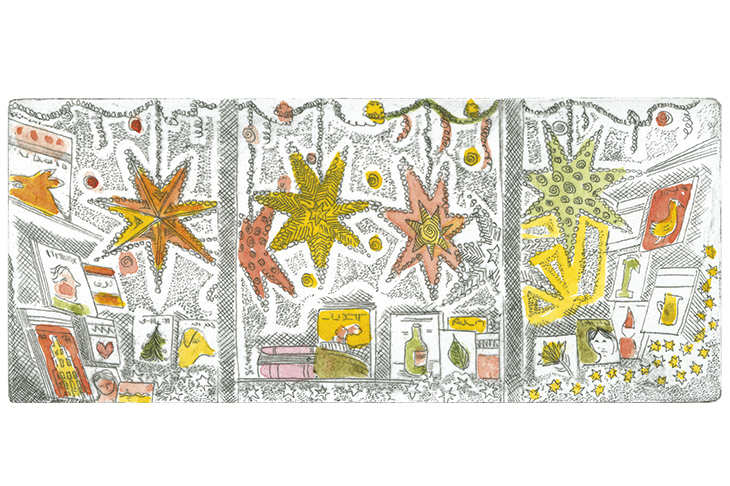
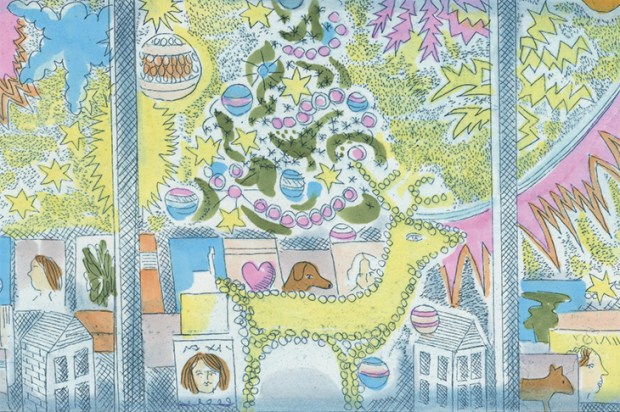
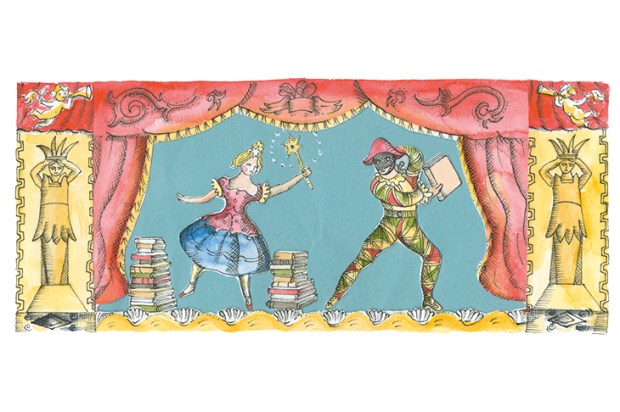
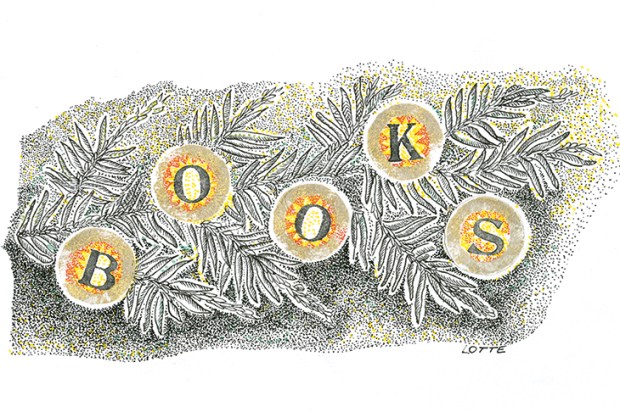

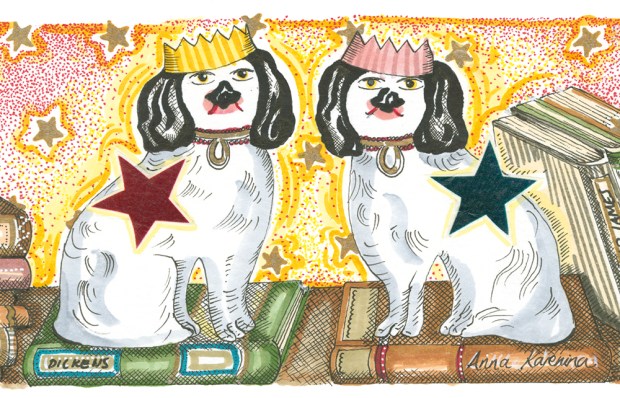
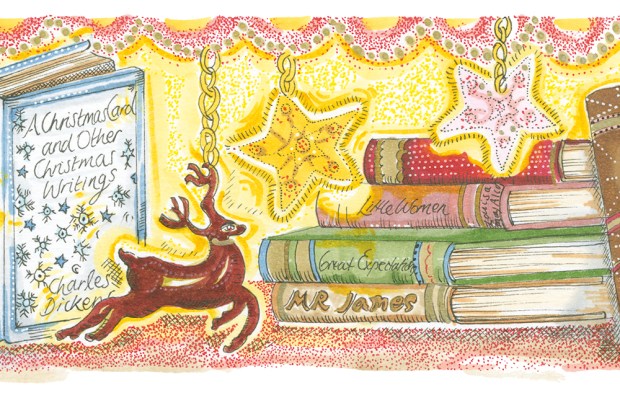






Comments
Don't miss out
Join the conversation with other Spectator Australia readers. Subscribe to leave a comment.
SUBSCRIBEAlready a subscriber? Log in